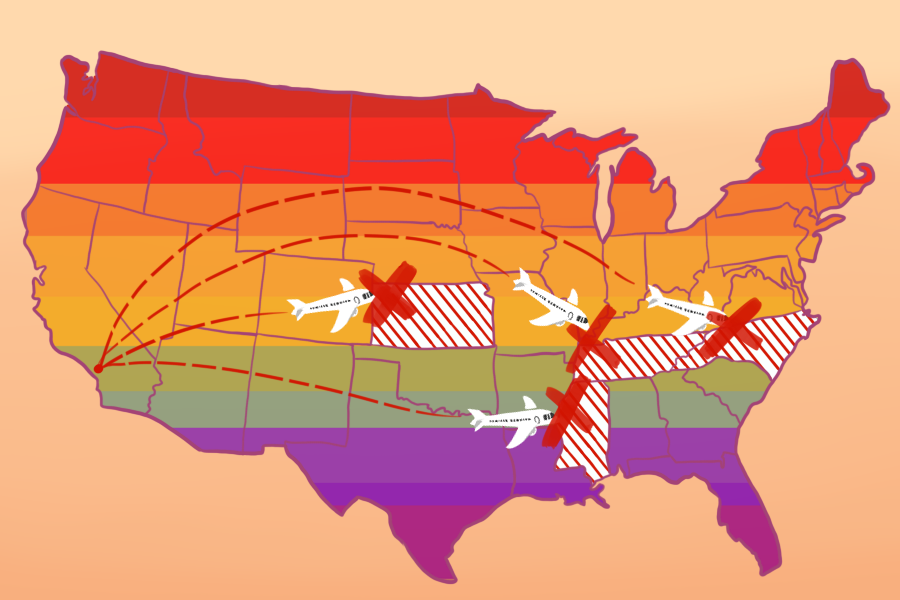
Law to affect students selected to attend National Conference on Undergraduate Research
One of the many new California laws that took effect on Jan. 1 was Assembly Bill 1887, a bill written and sponsored by Assemblymember Evan Low (D-28). The law, a response to “religious freedom” and “bathroom bills,” prohibits state-funded travel to states outside of California with anti-LGBT laws. Since the University of California (UC) is funded by the state, this law impacts travel opportunities for both students and faculty.
The four states where state-funded travel is currently prohibited are Kansas, Mississippi, North Carolina and Tennessee.
“The impetus for this [law] was that there were states that were passing very anti-LGBT, discriminatory laws,” Low said. “In response to that, companies, not only in my district, but companies, tech companies, industries, such as Hollywood, indicated that they would boycott and withdraw any of their businesses in these discriminatory states because they did not want to subject their employees to potential discrimination. [The state does] not want to subsidize discrimination.”
Low views this law as an attempt by California to ensure that it does not fund other states that do not uphold California’s values.
“The difference [between companies] and the State of California, so a government entity, and these are taxpayer dollars, so we will not allow taxpayer dollars to support any kind of discrimination, ” Low said.
At least four UC Davis students and their sponsoring faculty will be impacted by this law, as they will not be able to receive funding from UC Davis to travel to the National Conference on Undergraduate Research (NCUR) this April at the University of Memphis in Tennessee.
“The students can go with alternate travel funding, and approval of their supervising professor for whom they’d be presenting their research work,” said Kimberly Hale, the interim director for UC Davis News and Media Relations, via email. “The university cannot contribute to their travel expenses due to the location of the conference.”
One of the students who will be impacted by this law is Mark Rivera, a fourth-year cognitive science and religious studies double major, who was selected to attend the NCUR.
“It’s quite the obstacle,” Rivera said. “No, [I] probably [won’t look for alternative funding]. I don’t want to have to expend the extra energy and time. I’m just kind of like, ‘okay, oh well, I missed out.’”
Rivera did express some discontent with the law.
“It’s silly,” Rivera said. “I think it’s exacerbating the exact problem it’s trying to address. If they don’t allow people from other parts of the country to come in, it’s going to make [those states] even more insular.”
Low countered this argument, stating that upholding the Californian value of inclusion is a foundation of the new law.
“I understand that viewpoint; I respectfully disagree,” Low said. “You saw the backlash of impact that these laws had in various places. Because of the swift backlash from so many forward-thinking companies and businesses, we have seen that individuals feel that perhaps this was just a wedge issue. We really need to have this occur and hit [these states] in the pocketbook where it really matters.”
According to Hale, if arrangements for the conference had been made before Jan. 1, there would have been no problem funding the travel, as the law is not retroactive. That is, the law cannot make punish an act that would be considered illegal under the new rule if it was committed before the law was in effect.
“It’s possible that the arrangements for the conference were made before January 1,” Hale said via email. “Also, if the travel [is] not funded by the state of California, then it does not fall under this state law.”
Apart from not applying retroactively, there are six other exemptions to the law: enforcing California law, litigation, appearance requests from the federal government; performing functions to keep grant funding, completing training for employment that is not available in California; and for matters of public health, welfare or safety.
Written by: Kenton Goldsby — campus@theaggie.org







